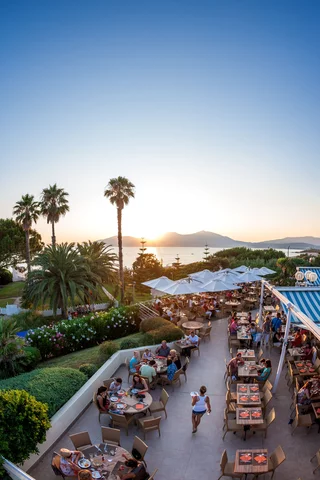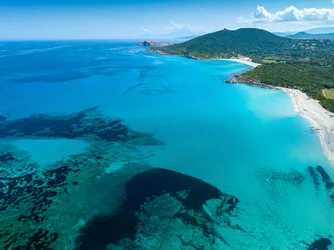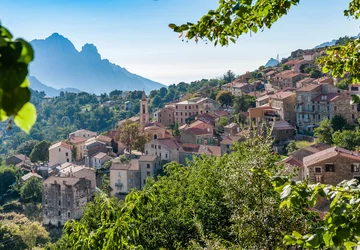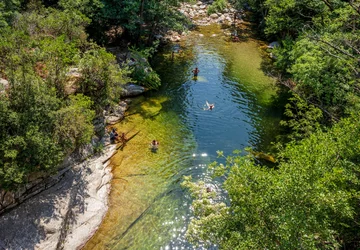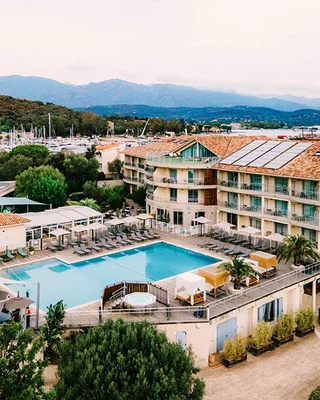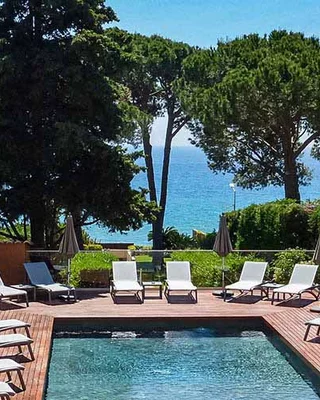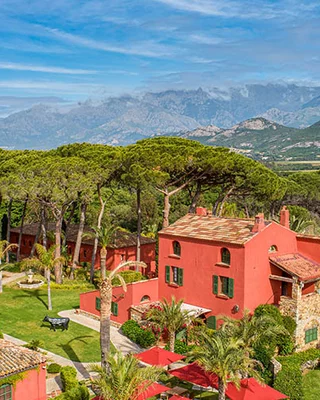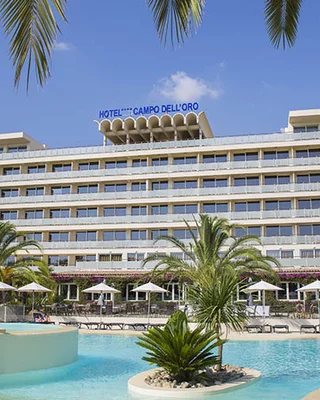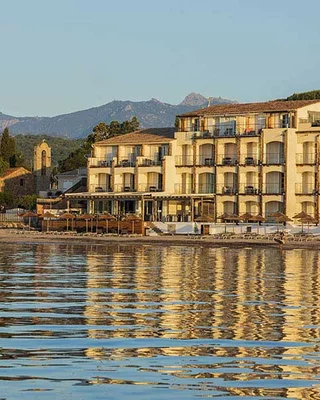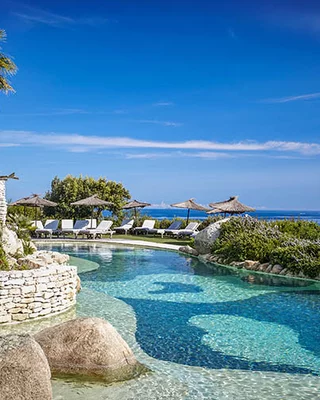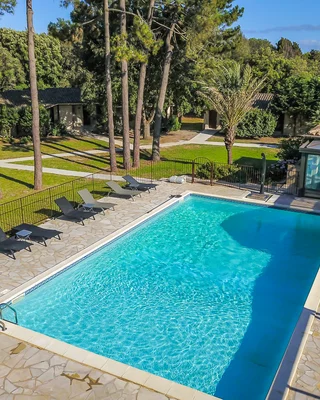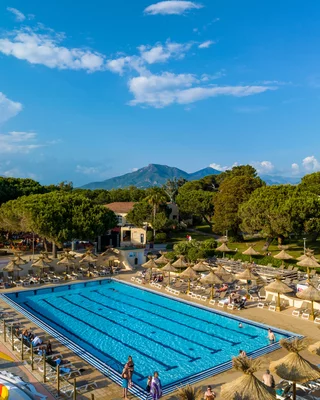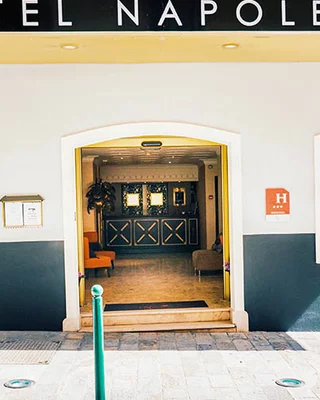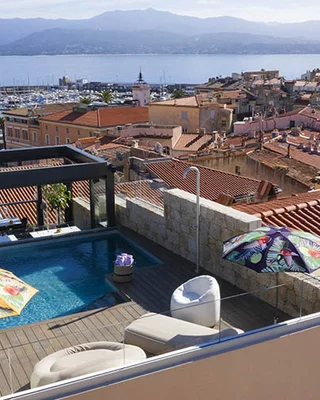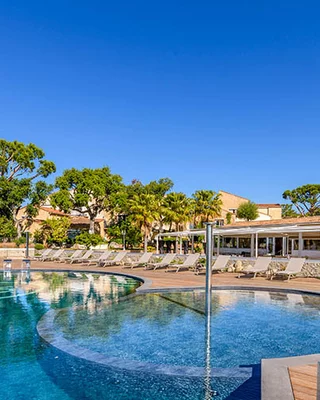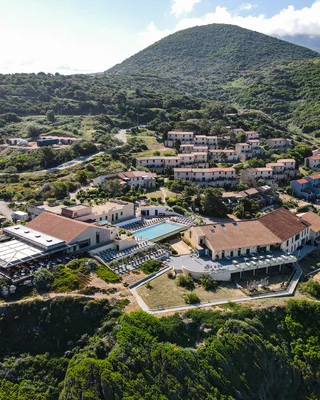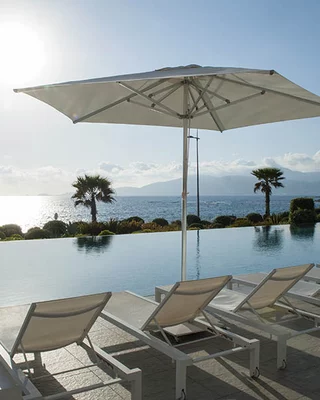Rispettu: sustainable hospitality in Corsica
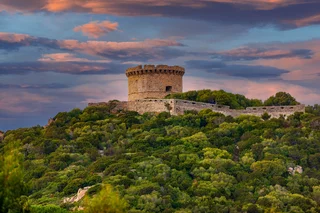
Corsican-style hotels are first and foremost men and women in search of others, of encounters, exchanges and discoveries. It's also a way of life, an art of living in this land of beauty and history. In a world where people are increasingly talking about the circular economy, sustainable hospitality is on a roll. It reduces waste and lightens the ecological footprint of vacations in general. The proof is in Corsica, where the Rispettu group was created.
Rispettu: a new awareness
The birth of a project
After looking at a number of existing standards, none was sufficiently close to Corsica's eco-responsible issues and identity. This is how the Rispettu association (respect in Corsican) was born in 2014 and officially announced in 2021, in order to set up a concrete program for a sustainable hotel industry with a Corsican identity, invented by local hoteliers and their partners.
Corsica has 3,000,000 visitors a year for 300,000 inhabitants, resulting in a drastic increase in the consumption of energy, water, food and waste. A real rethink was called for, to offer tourists a holiday with a sense of identity and respect for this exceptional wild land to be preserved.
Sustainable tourism and responsible tourism: a subtle difference
The term "sustainable tourism " is officially defined as follows: Tourism that takes full account of its current and future economic, social and environmental impacts, by meeting the needs of visitors, professionals, the environment and host communities. Another aspect is the enhancement of identity and the preservation of local know-how. It includes the notions of ecosystem and ecology.
Responsible tourism involves a responsible approach on the part of the tourist and the tour operator in their approach to tourism, choosing trips that respect the planet and its inhabitants. You will find here the ethical charter of the responsible traveler
Lodgers and partners: an essential pairing
The Rispettu association brings together 30 accommodation providers and 30 partners. They work together to reduce the environmental impact of their hotels and cut costs, while promoting Corsica as a destination. Here are just a few examples: Veolia, kyrnolia help to control water consumption, Centrale corse bio and its effective eco-friendly cleaning products made from recycled cooking oil, Eco life group offers ecological and sanitary cleaning with ozonated water, shepherd Jean-Louis Laredo offers products from his farm and ecological educational tours ....
Rispettu is based on an econological approach. A contraction of the words economy and ecology, this neologism was coined by Christophe Martz in 2003. The aim of econology is to show that it is possible to reconcile economics, ecology and the environment.
Green tourism: objectives and results
The main aim of the first Rispettu campaign was to help member hotels achieve a 10-20% reduction in their environmental impact. After one year, the results are significant: 29% gains in greenhouse gas emissions (mainly air conditioning), 30% in water consumption, 20% in waste. A large number of actions have been implemented: optimization of water flow rates for sanitary facilities, instructions to staff or customers on the use of energy-consuming equipment, installation of small regulation equipment, purchase of consumables with less impact.
After noting that 65% of breakfast was sourced on the continent, and that 45% of mass-produced products were purchased in individual formats, a more local breakfast offer was developed, with high value for customers (local character, discovery, product quality) and lower impact. Relocating, giving preference to seasonal products and choosing large-format, returnable packaging have all become priorities. With almost 3 million overnight stays per year in Corsica, the economic and environmental stakes for the sector are enormous.
Going further
Rispettu players are constantly seeking to improve their practices. They have access to personalized support to help them achieve this. Their aim is to eventually lead the majority of Corsican accommodation operators towards irreproachable environmental management.
To find out more, download the Rispettu leaflet.
Discover the central tool of their approach, consult ithere.
You can also watch videos on the subject : here.
Don't hesitate to watch this video testimonials from hotels in Corsica.
Rispettu: a real inspiration for other regions
In 2019, the program was named an exemplary project by ADEME Nationale (French agency for ecological transition), and invited to the Cannes sustainable development festival and the Into Day trade show. It also won the SERD prize (Waste Reduction Week) and the Barcelona Award for waste reduction. Invited to Biarritz on the theme of "Tourism as a regional gas pedal", it was then cited as part of the United Nations' sustainable development program for 2030, under the objective: "17 partners for a better world". It has served as an example for other regions, and this success is due to its regionality and the momentum it generates in a convivial atmosphere. Elsewhere, this collective dynamic is called "respect and conviviality".
As protectors of their land, Corsicans are keen to spread the word. Rispettu is a benchmark, but other labels are also in place on the island:
- The European Ecolabel: this is the only official ecological label common to all European Union countries. 67 criteria (including 22 mandatory) guarantee that travelers will reduce their environmental impact throughout their stay.
- La clef verte, Bienvenue à la ferme, ecogîtes gîtes de France
MARINA VIVA Club Hotel: evolution is the key word.
Adhering to the Rispettu charter from the outset, this waterfront establishment set in a magnificent park is a testament to its success. By training its staff and communicating with its guests, the hotel has succeeded in reducing electricity consumption without compromising their well-being. Each step forward is taken by, for and with hoteliers at a pace adapted to each individual, hence its great success.
It holds an environmental label to provide information on the hotel's performance. This label provides information to rank the establishment's performance, from A to E, a score calculated on the basis of 4 environmental indicators: greenhouse gas emissions, water consumption (life cycle), consumption of non-renewable resources and the percentage of organic and eco-labelled products in purchases. Hotels explain their approach in a text describing their commitment,
